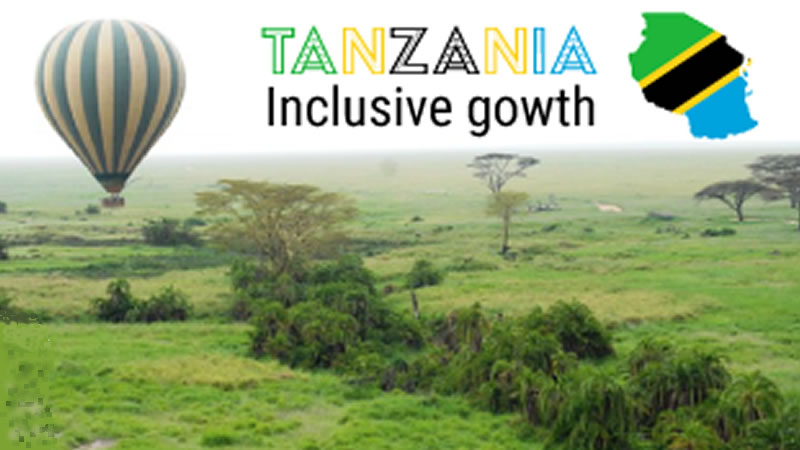This capacity development programme was conducted as part of the global initiative 'Delivering Results Together' operated under the United Nations Development Group.
The objective of this capacity development programme was to enhance the capacity of the government to monitor and report on the SDGs, with a particular focus on inclusive economic growth. Specifically, the objectives were to support the National Bureau of Statistics (NBS), the Ministry of Finance and Planning, the Office of the Chief Government Statistician (OCGS) and the Zanzibar Planning Commission (ZPC) to develop a consensus regarding the principles and standards for measuring, monitoring and evaluating progress on the Sustainable Development Goals in line with local development plans, such as, the Five Year Development Plan (FYDP) II, MKUZA III, the Tanzania Development Vision (TDV) 2025 and the Zanzibar Vision 2020. A particular emphasis was placed on developing an understanding and awareness of the interlinkages that are central to Agenda 2030, and on the importance of developing a functioning National Statistical System (NSS) and National Data Infrastructure (NDI) in order to measure these interlinkages.
Activities:
Capacity building training was provided on both the Tanzanian mainland and the island of Zanzibar, as both statistical and evaluation systems are autonomous. Training targeted both strategic issues (and possible solutions) and more mechanical production issues (such as data sources, analyses, visualization and best practices for monitoring & evaluation). Course content were designed in consultation with UNRC, and in collaboration with UNDP, UNIDO, UNICEF, the National Bureau of Statistics (NBS) in Tanzania and the Office of the Chief Government Statistician in Zanzibar.
For both the Tanzanian mainland and the island of Zanzibar, the capacity development comprised of a plenary seminar, where high level strategic issues, such as the importance of institutional coordination and national data infrastructure to support statistical compilation and monitoring and evaluation were discussed. This was followed by 4 technical workshops on: data visualization; trade indicators; statistical analyses; and monitoring & evaluation. For both the seminars and the workshops the course content were designed in consultation with UNRC, UNDP, UNOPS, UNICEF, the National Bureau of Statistics (NBS) in Tanzania and the Office of the Chief Government Statistician in Zanzibar, taking on board previous capacity building lessons.
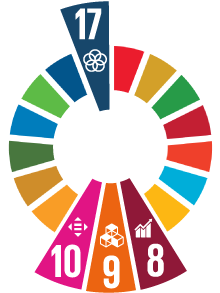 Link to the SDGs:
Link to the SDGs:
![]() Promote sustained, inclusive and sustainable economic growth, full and productive employment and decent work for all.
Promote sustained, inclusive and sustainable economic growth, full and productive employment and decent work for all.
![]() Build resilient infrastructure, promote inclusive and sustainable industrialization and foster innovation.
Build resilient infrastructure, promote inclusive and sustainable industrialization and foster innovation.
![]() Reduce income inequality within and among countries.
Reduce income inequality within and among countries.
![]() Strengthen the means of implementation and revitalize the global partnership for sustainable development.
Strengthen the means of implementation and revitalize the global partnership for sustainable development.
Accomplishments:
The combination of statistics and monitoring & evaluation was a unique feature of this capacity building programme. In total 116 people received training. The objectives of the seminars were achieved in both Tanzania and Zanzibar. All participants noted that their expectations had been met (or exceeded) and that their evaluation of the plenary seminars had been good or excellent. Participants also noted that the content of the plenary seminars was relevant and suitable to them and to their organisations. See post-evaluation feedback - Table 2.
Table 1. Number of Participants
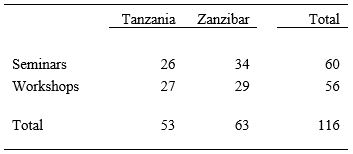
The marriage of statistical analyses and monitoring & evaluation seemed to work quite well, with 96% of participants agreeing that combining statistics and M&E was both useful and interesting. Participants stated that course material was very useful and relevant but felt that insufficient time had been allocated to each topic. Future programmes should allow considerably more time for each topic. Demand for database management was also noted.
Table 2. Expectations & Evaluation, and Relevance & Suitability of content of the Plenary Seminars
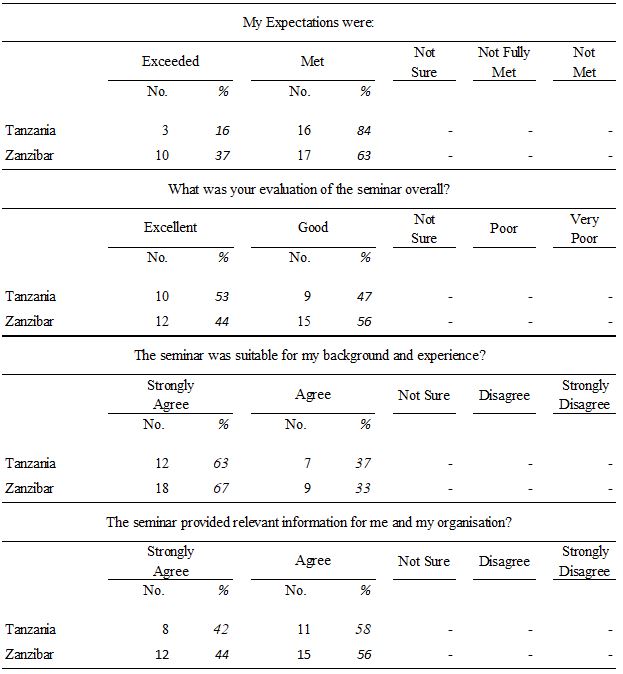
Source: Ex-Post Evaluation conducted by UNCTAD
The feedback from the technical workshops was more varied, and also depended on the actual session/topic. For ease of presentation, the feedback from all of the different workshops has been aggregated together. In general 85% of participants in Tanzania and 90% in Zanzibar stated that their expectations of the workshops had been met or exceeded. Furthermore 96% of participants in Tanzania and all participants in Zanzibar stated that the workshops were either excellent or good. 98% of participants in both Tanzania and Zanzibar reported that the workshops were appropriate to their background and experience, and all agreed that the content was relevant to their organisations (see Table 3).
Table 3. Expectations & Evaluation, and Relevance & Suitability of content of the Technical Workshops
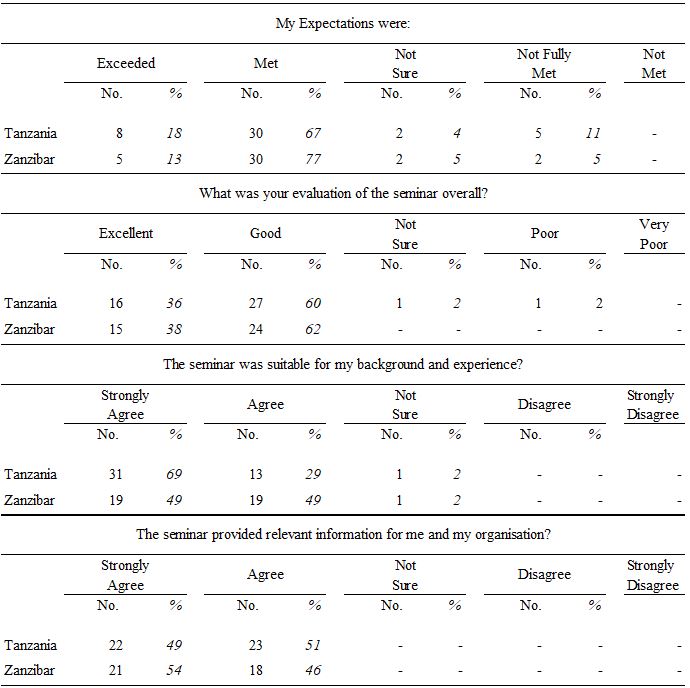
Source: Ex-Post Evaluation conducted by UNCTAD
Similar, to the feedback received for the plenary seminars, the main complaint was participants felt that more time was needed to cover the topics. It also seems that the parallel sessions were not viewed as a good idea, as many participants made clear their disappointment that they could not attend all the different sessions.



